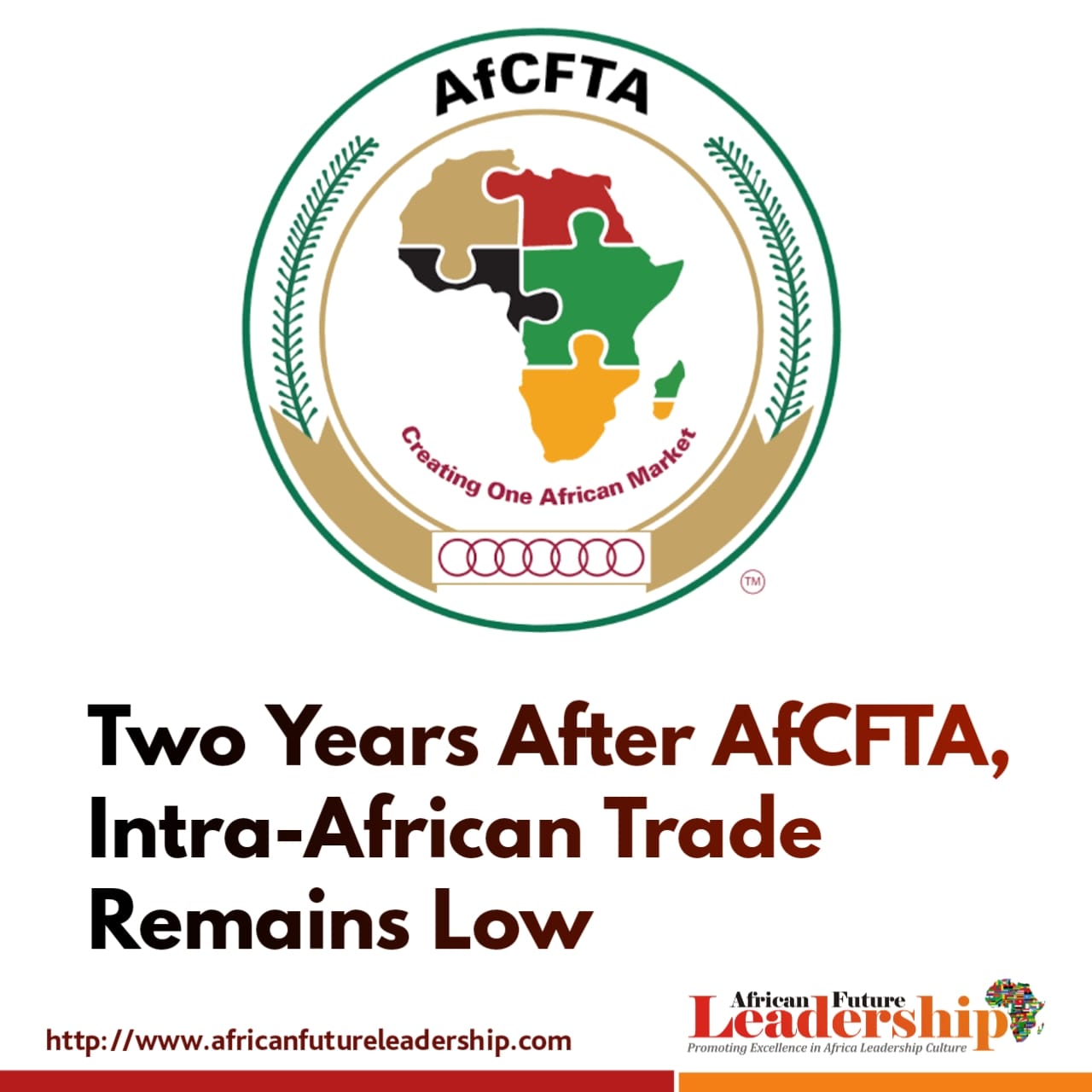By our Correspondent
Two years after the world’s largest free trade area became operational with much fanfare on January 1, 2021, the implementation of the single continental market has been delayed for several reasons, from the COVID-19 pandemic to the lack of agreement on the rules of origin for some product lines and the failure of 10 out of the 54 signatories to ratify it.
Though several African nations have started trading a trickle of goods under the African Continental Free Trade Area (AfCFTA) agreement via the pilot phase, tariff and logistics challenges hobble trade, with preference still for trade partners outside the continent.
READ MORE: Competitive Intelligence: Market Information Impacts SME Exports
Under the AfCFTA agreement, cross-border taxes on 90 per cent of goods are supposed to fall at the latest by 2030, although the tariffs on numerous products will be phased out even earlier.
But tariffs are only one of the many barriers to trading across Africa. Logistics is another major hurdle, considering that three-quarters of Africa’s goods are carried on roads, which are often poorly built.
According to the African Development Bank, this increases the cost of logistics on the continent, which can add 75 per cent to the price of African goods.
Nigeria’s trade in goods with the rest of Africa in about five years stood at N15.85 trillion, data obtained from the National Bureau of Statistics (NBS) have shown.
The figure covers 2018 till September this year. The value translates to 9.3 per cent of the country’s total foreign trade in the period, underscoring the low level of intra-African trade.
In the same period, the value of the country’s trade with members of the Economic Community of West African States (ECOWAS) averaged N1.42 trillion yearly, bringing the sum for the period to N7.09 trillion or 4.2 per cent of the total trade in the period.
Nigeria’s foreign trade was estimated at N170.27 trillion in the timeframe, with exports slightly higher at 52.6 per cent share of the nominal value.
The regional trade in the period reviewed was dominated by Nigeria, which aligned with the historical trend. Of the N15.85 trillion regional trade, exports totaled N12.76 trillion or 80.5 per cent, while the country imported a paltry N3.09 trillion value of goods.
Also, goods brought into the country from other ECOWAS countries through official routes in the period accounted for 7.5 per cent of the trade value. The value was N528.6 billion whereas the country’s exports to the neighbouring countries were over 12-fold (N6.36 trillion).
The low intra-regional trade, as underpinned by the NBS figures is low, its growth is also anaemic at best and mostly retrogressive. For instance, in 2019, the figure grew by almost 80 per cent to N5.03 trillion only to slump by 44.7 per cent the following year. Last year saw the value of trade between the biggest regional economy and other African countries improved slightly (6.6 per cent).
As at September, the value was N2.28 trillion, putting the annualised estimate at N3.04 trillion, which will be about 2.5 per cent higher than last year’s performance.
The African Regional Integration Index does not reflect efforts to push the single market and free-movement agenda in past decades, with foreigners said to be able to move more freely in the region than Africans themselves.
Averaging 0.383, trade integration on the African continent tends towards the lower rungs of the score ladder, the index said. It adds that Africa has the highest average import duties and the highest average non-tariff barriers in the world.
Nigeria has yet to finalise its tariff schedule as well as unveil guidelines and implementation strategy for the trade deal, raising concerns for the organised private sector.
The Secretary, National Action Committee on AfCFTA, Francis Anatogu, had announced that all was set for Nigeria to begin trading activities under the it.
Anatogu said Nigeria must pay attention to trade facilitation, policies, infrastructure, trade information, free movement of people and goods, finance and institutional coordination between the Federal Government and private sector.
READ MORE: DRC: For Killing Two Chinese Nationals Soldiers Sentenced to Death
“What we are focusing on in 2022 is understanding where the opportunities are and we have already identified areas that are priorities for AfCFTA in terms of products and services. We have also been able to dimension them into arrowheads to help us focus on the short term and frontiers that we can focus on the medium to long term,” he said.
He, however, stated the need to grow the volume of transactions within the country, while also supporting and encouraging businesses to take advantage of the African markets. He also pointed out the need to attract global investment in the country’s bid to take advantage of the AfCFTA.
In his words: “At the National Action Committee (NAC), our mission and vision for the AfCFTA is to take 10 per cent of Africa’s import from the world to provide the products and services from Nigeria that are currently being supplied by other countries outside Africa, but we know that for us to achieve that, we need to focus on developing value chain in products and services.”
He said according to the Nigerian Export Promotion Council (NEPC), export has grown in the past one year, advising that the next step for Nigeria is to boost its manufacturing presence on the continent.
He noted that so far, seven countries have started piloting the AfCFTA trade, saying Nigeria is on the verge of joining, adding that one of the key elements the country is trying to put in place is the preferential trade process to be able to trade under AfCFTA.
“The Nigerian Customs Service (NCS) has developed this procedure and is being reviewed with the stakeholders with a view to adopting it and publishing it for businesses to start to use,” he added.




